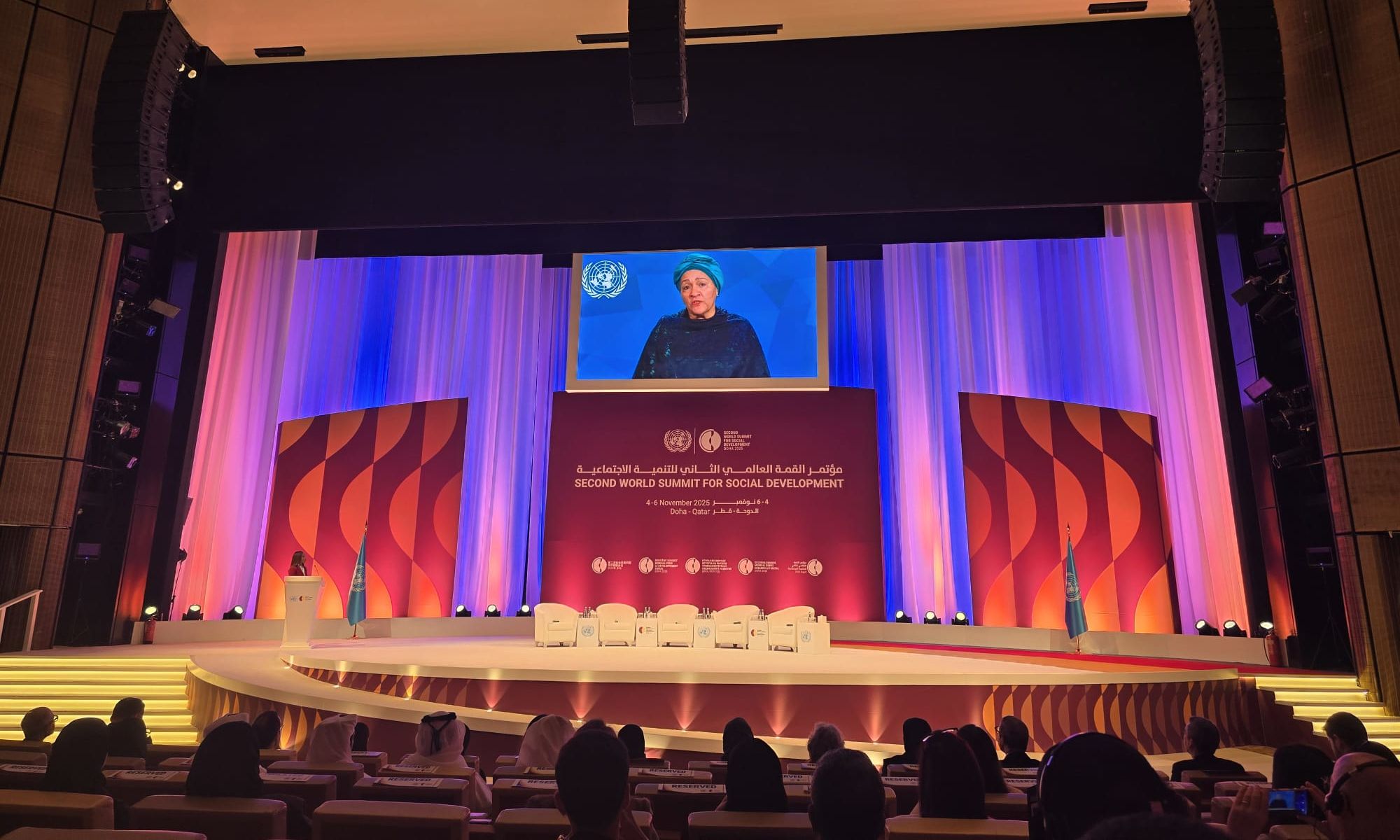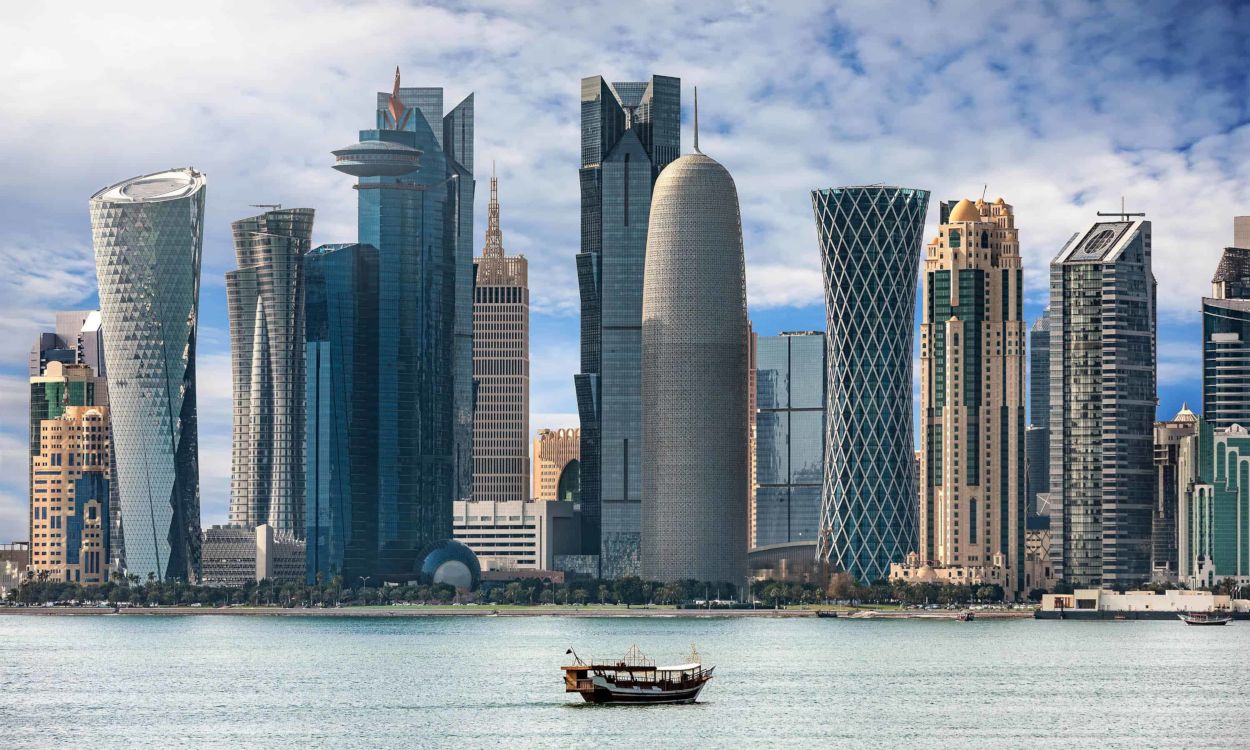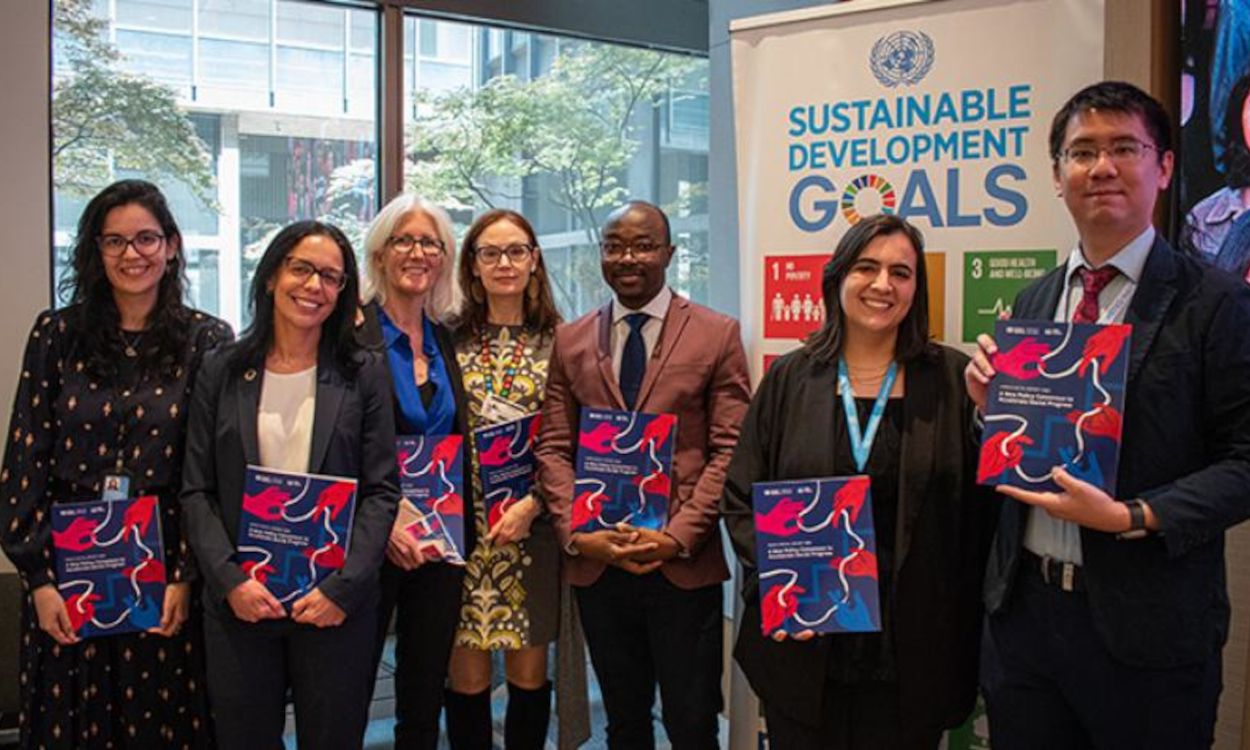75th Anniversary of the Universal Declaration of Human Rights

On December 10th, 2023, the world will celebrate the 75th anniversary of the Universal Declaration of Human Rights (UDHR), a pivotal document of the United Nations that proclaims the inherent freedom, dignity, and equality of all individuals. Establishing the foundation for human rights, the values enshrined in the UDHR are as relevant and applicable today as they were 75 years ago. In the passing decades, the UDHR has evolved from being an aspirational declaration into a more definitive set of standards and expectations that has shaped international law and governance, influencing both national and international constitutions and institutions. While the UDHR does not specifically address social welfare as a stand-alone right, the document contains several provisions that have profound implications for social welfare and the well-being of individuals. The International Council on Social Welfare (ICSW) considers the Universal Declaration to be a milestone document and a vital platform for its own activities.

The Declaration is inextricably tied to development, outlining the rights of individuals to a standard of living that promotes health and well-being, including the right to education, the right to work, and the right to social security. Poverty, inequality, and social exclusion represent the most pressing issues that hinder the fulfillment of human rights for millions of people worldwide. Economic disparities, growing vulnerability, and inadequate social protection remain formidable barriers to progress. The 2030 Agenda and its 17 Sustainable Development Goals (SDGs) offer a roadmap to the global community towards an inclusive development that is firmly anchored in universal human rights. The fundamental pledge of the 2030 Agenda, “to leave no one behind,” requires the global community to redouble their endeavors to eliminate extreme poverty, create opportunities for decent jobs, provide access to clean water, quality healthcare and education, and advance inclusion and participation of groups in vulnerable situations within all aspects of life. It requires that we view peace, sustainable development, and human rights as closely interconnected and interdependent.
Acknowledging the right of every person to a standard of living that ensures their health and well-being, including access to food, clothing, housing, and medical care, the UDHR implies that governments have a responsibility to establish social welfare programs that help meet those basic needs while guaranteeing the realization of rights for their citizens. The ageing of the population has become a truly global issue, and all countries of the world, regardless of the level of their development will need to cope with its numerous consequences. The rights of older persons, their equal treatment and non-discrimination must be sustained under all circumstances, and their dignity respected. Furthermore, the Declaration sets out the fundamental rights and freedoms to which all people are entitled, regardless of their citizenship status. In this light the ICSW supports the elaboration and enforcement of laws that promote equal access to education, healthcare, employment, and social services for both citizens and non-citizens.
Acknowledging the principle of the progressive realization of rights, the ICSW advocates for social well-being policies that could be seen as practical steps towards the progressive realization of various rights, including working to improve living conditions and opportunities. Integrating human rights principles into development efforts ensures that the pursuit of social well-being is grounded in equality and justice while the multidimensional nature of the well-being is firmly recognized. Developing and using comprehensive metrics that go beyond traditional economic indicators (such as GDP) to measure well-being, such as the inclusion of health outcomes, education attainment, environmental sustainability, and social cohesion, as well as subjective happiness, are important for broadening the focus from social welfare to social well-being and enhancing the overall quality of life for individuals and communities.
The Declaration further emphasizes the right to social security, ensuring that individuals and families have protection against various risks and vulnerabilities throughout the life cycle. Despite the advances made over the past seven decades, many challenges persist in realizing these rights fully. Therefore, as we honor and commemorate this milestone document, we must also reflect on the existing gaps between its promise and its implementation, recognizing the work that lies ahead.
One of the most important aspects of the UDHR document is its emphasis on social security as a way to protect against unemployment, disability, and other risks that may lead to a loss of livelihood. Social protection allows for a life in dignity and plays a vital role in supporting individuals and families in times of need. Social protection systems, including floors, play a crucial role in promoting social welfare and ensuring the well-being of individuals and communities. Social protection guarantees embrace the right to social security, healthcare, education, housing, and other essential services and serve to ensure that individuals are not left without basic support in times of need. They also contribute to reducing inequalities and promoting social inclusion. Unfortunately, in many countries, social protection schemes are insufficient or inaccessible, leaving many people at risk. Considerable gaps in social protection provision are incompatible with the principles of human rights, but they also represent a missed opportunity from a developmental standpoint.
Access to social protection is not only a moral imperative ingrained in the Declaration; but also an indispensable tool for fostering inclusive and equitable societies, in which redistribution and solidarity play important roles in constructing and maintaining a lasting social peace. Therefore, achieving comprehensive social protection for all communities is an ongoing challenge that requires concerted efforts from governments, civil society, and international organizations, such as the ICSW. Governments and policymakers must prioritize, and strengthen, social security and protection as integral components of human rights. By establishing social protection systems, including floors, and making social security guarantees a reality, governments can create a framework for addressing deep-seated problems of poverty, inequality, and social exclusion.
Similarly, civil society organizations play a crucial role in advocating for social welfare and holding governments accountable. By raising awareness, mobilizing support, and engaging in advocacy, we can contribute to the realization of human rights and welfare in a manner that reflects both general principles and national social, economic, and political contexts.
As we approach the 75th anniversary of the Declaration, it is an opportune time to recommit ourselves to the principles of human dignity, equality, and social justice. Through reflection on the progress that has been made and the challenges that remain, it is imperative that we work together to uphold the fundamental human rights that enable individuals and communities to thrive and flourish with dignity. We should spare no efforts to sustain a human-centered approach to development. Although a full promise of the Universal Declaration of Human Rights is yet to be realized, the document’s universality and unwavering ideals of justice and human dignity stand as a testament to its enduring significance.





